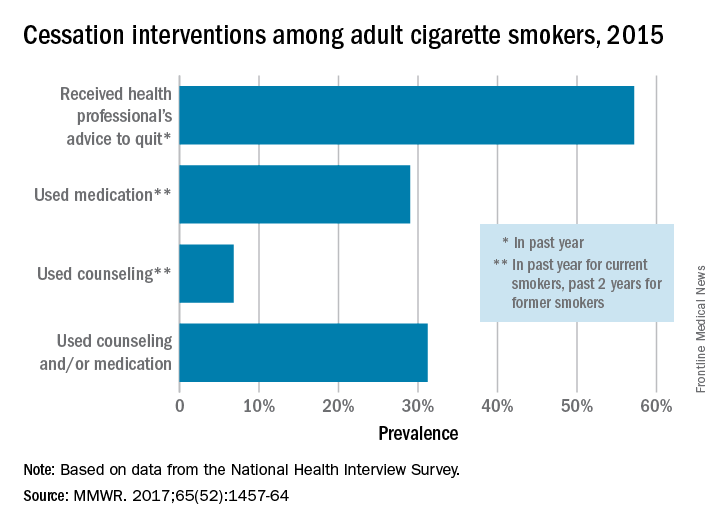More than half of cigarette smokers have received advice to quit from a health care professional, but less than a third used medication or counseling in their cessation attempt, according to investigators from the Centers for Disease Control and Prevention.
In 2015, just over 57% of adult smokers said that a health care professional had advised them to quit in the past year. Of those who tried to quit, 29% used medication such as nicotine patches or gum, varenicline, or bupropion; 7% used counseling (including a stop-smoking clinic, class, or support group and a telephone help line); and 31% used counseling and/or medication, the investigators reported (MMWR 2017;65[52]:1457-64).
Data from the 2015 National Health Interview Survey show that cigarette smokers who were white (60%) or of multiple races (70%) were the most likely to have a health professional tell them to quit, while Asians (34%) and American Indians/Alaska natives (38%) were the least likely. Whites were most likely to use counseling and/or medication (34%) and Hispanics were least likely (19%), although the rate for American Indians/Alaska Natives was not reported because of a small sample size or large margin of error, they noted.With the overall cessation rate at less than 10%, “it is critical for health care providers to consistently identify smokers, advise them to quit, and offer evidence-based cessation treatments, and for insurers to cover and promote the use of these treatments and remove barriers to accessing them,” the investigators wrote.


